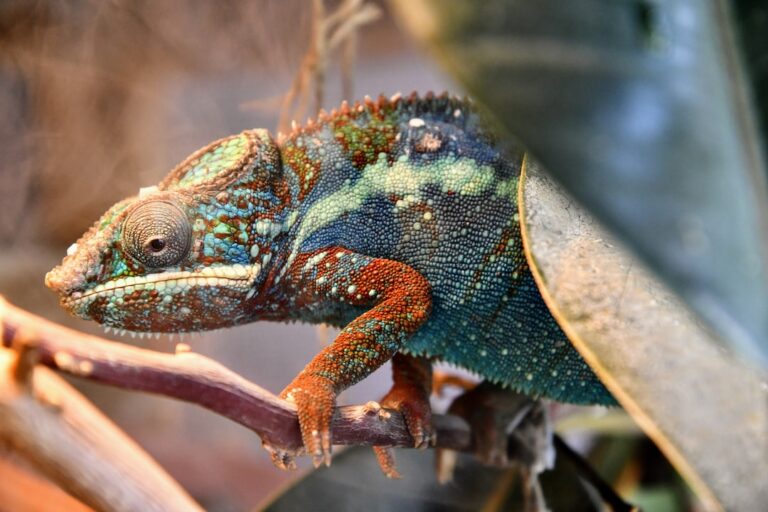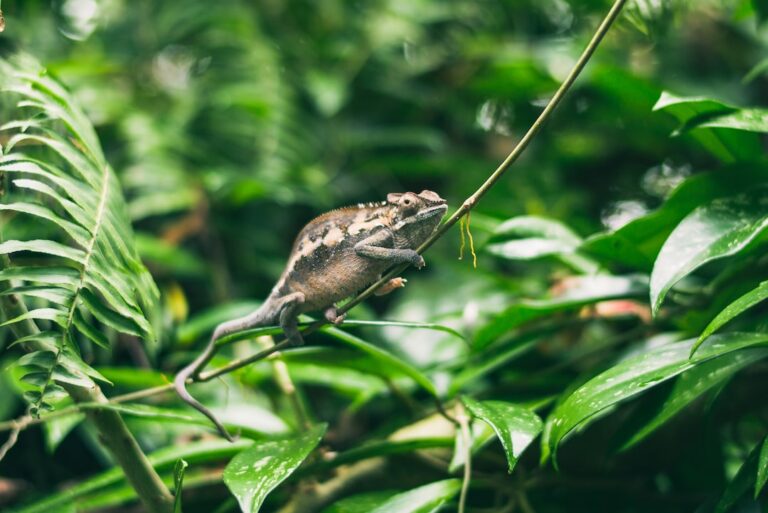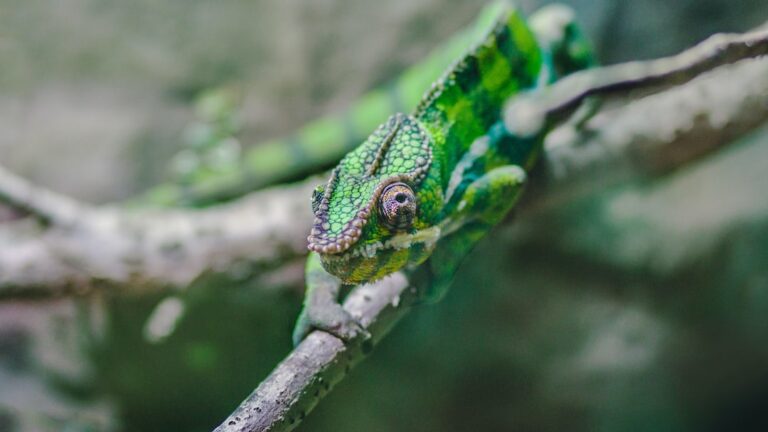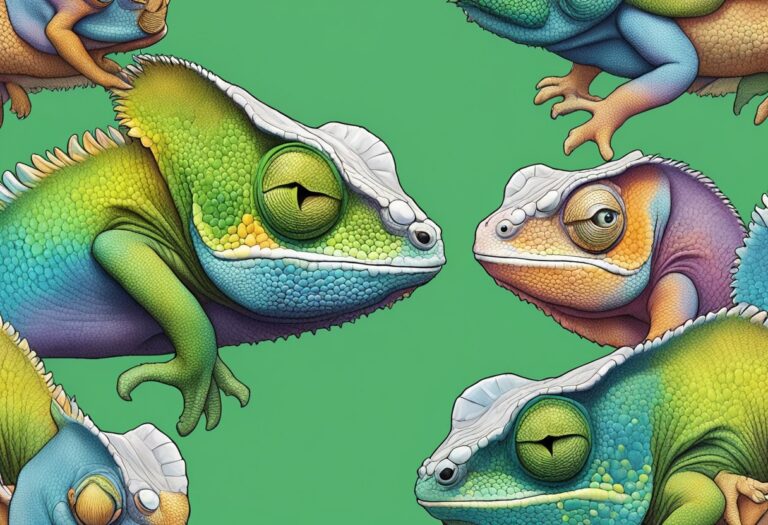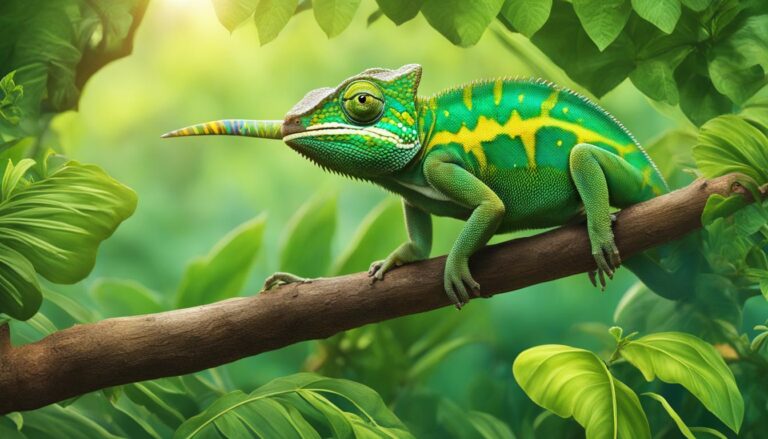Can Chameleons Eat Grapes?
Chameleons are fascinating creatures known for their ability to change color and blend into their surroundings. They are native to Africa, Madagascar, and parts of Asia, and are popular pets due to their unique appearance and behavior. When it comes to their diet, chameleons are primarily insectivores, meaning they mainly eat insects. However, they can also benefit from a variety of fruits and vegetables in their diet.
Table of Contents
The Nutritional Value of Grapes for Chameleons
Grapes are a popular fruit that many people enjoy, but did you know that they can also be beneficial for chameleons? Grapes are rich in vitamins and minerals that can contribute to a chameleon’s overall health. They contain vitamin C, which is important for boosting the immune system and preventing illness. Grapes also contain vitamin A, which is essential for maintaining healthy eyesight and skin.
In addition to vitamins, grapes also provide chameleons with hydration. Chameleons have a unique way of drinking water by lapping it up with their tongues. However, they can also benefit from the moisture found in fruits like grapes. This can help prevent dehydration, which is a common issue among chameleons.
Can Chameleons Safely Digest Grapes?
Chameleons have a specialized digestive system that allows them to process a variety of foods, including fruits like grapes. Their digestive system consists of a long digestive tract with multiple compartments, including the stomach and intestines. This allows them to break down and absorb nutrients from their food efficiently.
However, it’s important to note that chameleons have small mouths and throats, which can make it difficult for them to swallow large pieces of food. This is why it’s important to prepare grapes properly before feeding them to your chameleon.
The Importance of Moderation in Feeding Grapes to Chameleons
While grapes can be a nutritious addition to a chameleon’s diet, it’s important to feed them in moderation. Chameleons should primarily be fed a diet of insects, as this is what they would eat in the wild. Fruits and vegetables should only make up a small portion of their diet.
Feeding too many grapes or other fruits can lead to an imbalance in a chameleon’s diet and potentially cause health issues. It’s important to provide a variety of foods to ensure they are getting all the necessary nutrients they need.
Potential Risks of Feeding Grapes to Chameleons
While grapes can be beneficial for chameleons when fed in moderation, there are some potential risks associated with feeding them this fruit. One risk is choking, as chameleons have small mouths and throats that may not be able to handle large pieces of food. To prevent choking, grapes should be cut into small, bite-sized pieces before being offered to your chameleon.
Another potential risk is digestive issues. Chameleons have sensitive digestive systems, and feeding them too many grapes or other fruits can lead to diarrhea or other digestive problems. It’s important to monitor your chameleon’s stool and overall health when introducing new foods into their diet.
How to Prepare Grapes for Chameleons
To ensure that grapes are safe for your chameleon to eat, it’s important to prepare them properly. Start by washing the grapes thoroughly to remove any pesticides or dirt. Next, cut the grapes into small, bite-sized pieces that your chameleon can easily swallow. This will help prevent choking and make it easier for your chameleon to digest the fruit.
It’s also important to offer grapes as part of a balanced diet. This means that they should be given in conjunction with other fruits, vegetables, and insects. Variety is key when it comes to a chameleon’s diet, so be sure to offer a wide range of foods to ensure they are getting all the necessary nutrients.
Alternatives to Grapes for Chameleons
While grapes can be a nutritious addition to a chameleon’s diet, there are also other fruits and vegetables that can be included. Some good options include apples, strawberries, blueberries, and leafy greens like kale and collard greens. These foods provide a variety of vitamins and minerals that can contribute to a chameleon’s overall health.
It’s important to note that not all fruits and vegetables are safe for chameleons to eat. Some foods, such as citrus fruits and avocados, can be toxic to them. It’s always best to do your research or consult with a veterinarian before introducing new foods into your chameleon’s diet.
Understanding the Unique Digestive System of Chameleons
Chameleons have a unique digestive system that sets them apart from other animals. Their long digestive tract allows them to extract as many nutrients as possible from their food. They also have specialized enzymes in their stomachs that help break down proteins and other nutrients.
Chameleons also have a slow metabolism, which means they don’t need to eat as frequently as some other animals. This is why it’s important to provide a balanced diet that meets all their nutritional needs.
Signs of Digestive Issues in Chameleons
It’s important to monitor your chameleon for any signs of digestive issues. Some common signs include diarrhea, constipation, loss of appetite, or changes in behavior. If you notice any of these symptoms, it’s important to consult with a veterinarian who specializes in reptiles.
Digestive issues can be caused by a variety of factors, including an imbalanced diet or an underlying health condition. It’s important to address these issues promptly to prevent further complications.
The Role of Grapes in a Balanced Chameleon Diet
In conclusion, grapes can be a nutritious addition to a chameleon’s diet when fed in moderation. They provide vitamins, minerals, and hydration that can contribute to a chameleon’s overall health. However, it’s important to prepare grapes properly and offer them as part of a balanced diet that includes a variety of foods.
Feeding too many grapes or other fruits can lead to an imbalance in a chameleon’s diet and potentially cause health issues. It’s important to monitor your chameleon for any signs of digestive issues and consult with a veterinarian if necessary.
By understanding the unique digestive system of chameleons and providing them with a balanced diet, you can ensure that they are getting all the necessary nutrients they need to thrive.
If you’re interested in learning more about reptile feeding habits, you might also enjoy reading the article “Can Chameleons Eat Superworms?” on Reptile Friend’s website. This informative piece explores whether chameleons can safely consume superworms as part of their diet. To find out more, click here.


